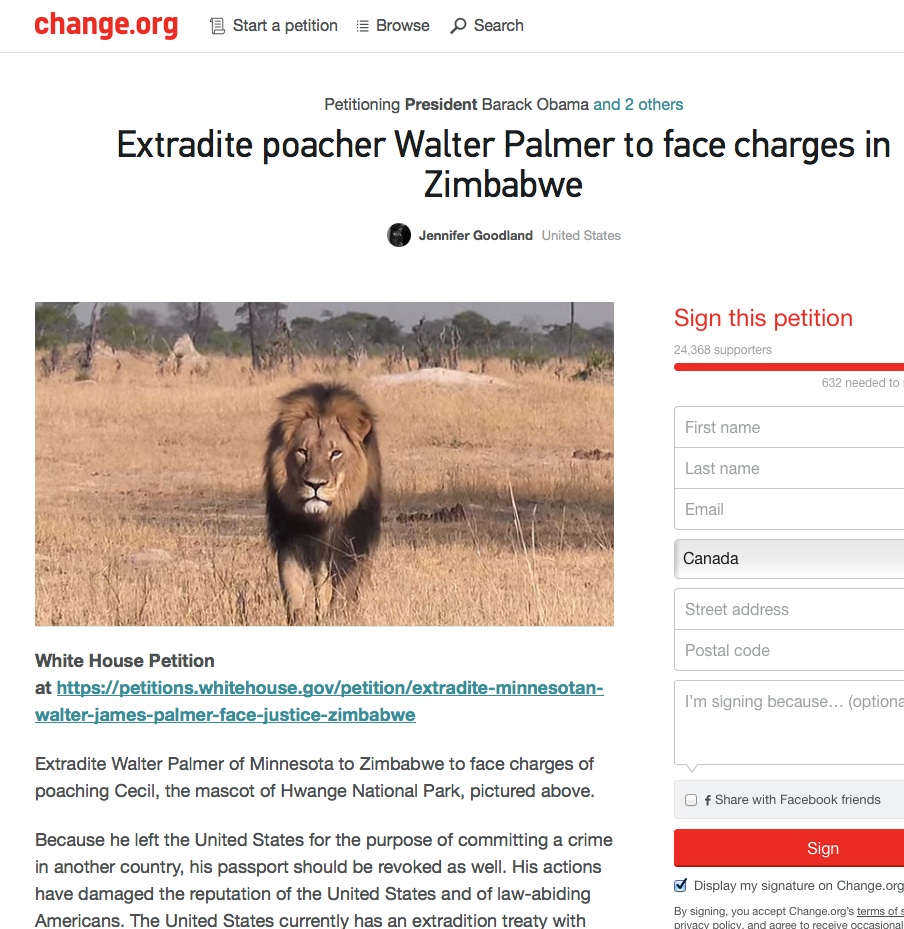How an Online Reputation Can Kill a Multi-Million Dollar Medial Practice; Case Study: Walter Palmer
When searching for a medical professional like a dentist or a family doctor, most of us either get a reference from family or friends. Although, some other people might do an online search for a local medical professional. Sooner or later, we also get the urge to compare the level of service and competency we get from our practitioner. Ever wonder what people outside your immediate circle think of them?
There are some sites out there who rely on patients to rate health professionals. In some cases there are doctors who have got in trouble for touching a patient inappropriately or showing up late to appointments, it is all there. Most medical professionals can survive this kind of attack if there is a lack doctors in the area, or if they have been in the field for so long, that they have their loyal base of patients by their side. But what happens if the whole world is against you for something you did outside of work. Say as a hobby; ring a bell?
I am sure you have heard about the guy who traveled to Zimbabwe and killed Cecil the lion. If you search for his name of Google, the first ‘positive’ site about him only appears starts appearing on the third search results’ page. Imagine what will happen to his practice. Most of his clients will join another dental clinic and he will have a very hard time attracting new patients.
THE MEDIA
Anyone who has a say in pop culture voiced their opinions on the matter bashing Palmer on his actions. Anyone from Jimmy Kimmel to Ricky Gervais. There is even a petition on change.org to extradite him and face criminal charges.

Just imagine all of the negative comments being left of his social media accounts and that of his practice. His Google reviews page was fluded with over 2000 new 1 star reviews.
The biggest mistake people do after they have been attacked online is delete all of their accounts.
That’s exactly what Walter Palmer did. Within hours he de-activated all his social media accounts. In ORM (online reputation management) we teach people how this is the worst thing you can do because these assets usually rank high in organic search results and if you remove them, you are just letting another site which you have no control over to take its place. Negative results will fill a vacuum of information. Instead, you want to activate the monitoring features and control who can post on these assets. You control the content!
Another reason not to delete your online accounts is that someone some time after deactivation, someone else can re-open an account under your personal or brand name and who knows what they will say pretending it is you.
You can use these assets to control the very top of Google search results. A search for Walter Palmer formerly had Twitter, Linkedin, Facebook and his clinic website at the very top of search results. Now have a look… Not so good!
This is a classic mistake in ORM. If you’re under attack, do not pull a Walter Palmer!